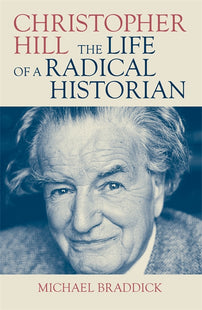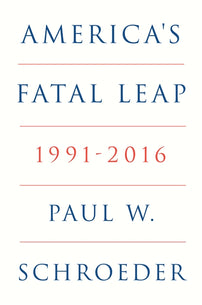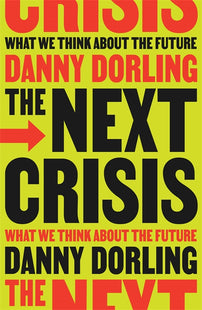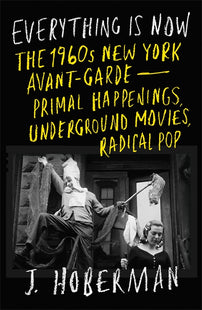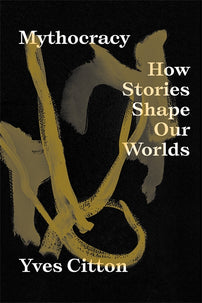Christopher Hill, the Communist Party (1956-57) and Historical Context: A (Minor) Footnote to a (Creditable) Folly
Historian Bryan D. Palmer offers an archival post-script to Michael Braddick's Christopher Hill: The Life of a Radical Historian.

In October 1994, Christopher Hill reviewed my small Verso book E. P. Thompson: Objections & Oppositions in the Times Higher Education Supplement (THES). Hill’s short evaluation went largely unnoticed. Even I remembered the review (and correspondence around it) only vaguely 30-odd years later. But a reading of Michael Braddick’s recent biography of the great historian of England’s seventeenth century and the dissident Diggers, Levellers, and Ranters the Master of Balliol College, Oxford revered and brought to life in his superb study, The World Turned Upside Down: Radical Ideas During the English Revolution (1972), got me thinking. Soon I was rifling through boxes of antiquated photocopies and creased communications.[1]
I did not know of Hill’s review when, shortly after its publication, I opened one of those light blue Royal Mail International Aerogrammes that periodically crossed my desk in times past from friends in the United Kingdom. This one was from John Saville, whose support and generosity I had been the beneficiary of since our first meeting at a gathering of “Commonwealth Labour Historians” in 1981.
John wrote about a number of things, but his letter and a subsequent communication were most concerned (and upset) with his friend Christopher’s review. Hill used the limited space of a book review to settle accounts with Edward Thompson over the Communist Party and the events of 1956-57. He professed that the exodus of some 7,000 members from the CPGB was “fired by Thompson’s protest, resignation and propaganda.” Hill suggested that if “they had remained in the party to fight for democracy the outcome might have been different.” Many who resigned, such as himself, Hill now claimed, “felt that Thompson’s precipitate actions had made defeat a certainty. We held that he should have stayed to fight within the party instead of ensuring its decline into insignificance.” Hill’s conclusion, arrived at under the THES title, “The Shock Tactician,” was somewhat barbed: “The walls of Jericho did not fall at the blast of Thompson’s trumpet,” and destroying the Communist Party that had a “distinguished agitational history” “was not a victory for any cause that Thompson claimed to believe in.”[2]
Hill closed his review with acknowledgement of Thompson’s justifiably lauded historical writing, for which he professed admiration “second to none.” Yet there was no mistaking his view that Edward’s “righteous wrath” was unduly hurtful and counter-productive. Tariq Ali recounts that decades after the events of 1956-57, Hill told him that the “rudest and most obnoxious letter I have ever received in my life was from Edward,” who railed against Christopher for “taking too long to leave the CPGB.” The man Edward Thompson dedicated Whigs and Hunters: The Origin of the Black Act (1975) to as “Master of more than an old Oxford College” clearly did not take kindly to “rude” chastisement.[3]
Saville wrote to me contextualizing where he and Thompson thought Hill was located politically in 1956-57. “Edward and I knew he wasn’t with us during the summer of the Reasoner [ed., 1956],” Saville stated, “but assumed that it was his experience on the internal commission on party democracy that made him realize the old guard would never change and just as important that at the conference of spring 1957 the mass of delegates were against him, and us.” Beyond this, Saville was astounded at Hill’s retrospective re-evaluation of the crisis in the Communist Party of Great Britain (CPGB).
Saville insisted it was not Edward who alienated the many trade unionists who departed the CPGB in 1956-57: they “were not readers of the Reasoner.” Lawrence Daly, a coal-miner militant born into a Communist family, and the future founder of the Fife Socialist League, left the Party in August 1956, before establishing contact with the Reasoner. Similarly, the Fire Brigades Union leadership left the CPGB en masse without any influence from Thompson, Saville, and others. Labour movement figures departed the Party, Saville claimed, because after Khruschev’s 20th Congress of the Communist Party of the Soviet Union speech of 1956, and the repressive Hungarian events later that year, disillusionment set in.
Christopher’s memory, according to Saville, was taking a distorting “interesting twist.” The commission on inner-party democracy that Hill participated in before resigning led to Christopher signing off on a minority report that he stated publicly he did not agree with entirely. Peter Cadogan and Malcolm MacEwan co-signed the statement. Saville was adamant that Hill “quite misjudges or forgets what happened,” and the minority report could never have won over the majority of CPGB delegates. The argument was “nonsense” Saville concluded.[4]
[book-strip index="1"]
Like John Saville, Dorothy Thompson took issue with Christopher Hill. She wrote to him after reading his review, zeroing in on what she disagreed with concerning “some aspects of your account of the ’56 events.” Dorothy challenged Christopher’s focus on Edward as the animating force behind both the Reasoner group and the approach it took in responding to the CPGB crisis. Thompson noted that she dissuaded Edward and John Saville from resigning “quietly … persuading them that they should stay in until they were expelled in order to make the arguments convincing.” She also offered an insightful comment: there may well have been a generational difference separating out the response of the Reasoners and an older cohort of Communists such as Hill. “We had after all, been 15 when the war broke out,” Dorothy noted; “had none of us been to the SU or had much to do with the CP in the ‘thirties.” She was flummoxed by James Klugmann’s perplexed response to the reaction to 1956’s revelations. Dorothy and Klugmann always got along well, and as they talked he confided that “he couldn’t understand why ‘this Joe business’ upset” Dottie so much. The Dorothy Thompson-Hill correspondence, while critical, was warm and congenial. Dorothy Thompson closed with “much love” to Christopher and his wife Bridget.[5]
Christopher replied to Dorothy in kind. Hill conceded that the generational aspect of who left the Party and who stayed in and desired reform was something worth considering; he “hadn’t thought of that before.” Edward, Hill agreed, was certainly not the “sole instigator of the Reasoner group,” but he focused on him nonetheless because he was “its most articulate and effective spokesman.” Beyond this, Christopher was unrepentant: “we can only agree to differ about the far-away events of 1956-7.” Hill noted the many “weary months of hard labour” that went into the writing of the minority report, a document which made “the right sort of suggestions.” He proudly reported the Vice-Chancellor of Glasgow University describing the document as “impeccably liberal” at the same time as he refused Hill “a job because” of his political opinions. Most tellingly, Hill recalled that the minority report “just failed to become the committee’s majority report because at the last minute King St. [ed., CPGB leadership] put some sort of pressure on a very good working-class comrade who had been with us all the way up to then.”[6] Neither Dorothy Thompson, John Saville, nor others whom they consulted, such as Martin Eve, were inclined to accept Christopher’s claims. Saville insisted that “the solid block of party functionaries would never have shifted.” There were barely “two working class members who had great sympathy for the minority report,” he countered. “It really is very unhistorical for Christopher to write in these terms,” Saville concluded in one of his letters to me.[7]
The April 1957 congress of the CPGB that saw Hill rebuked and the minority report he co-authored rejected seem to confirm Saville’s judgement. Hill and other reformers were treated to a Stalinist fusillade. Denounced as “spineless intellectuals,” Hill and others were advised to “take their medicine.” Christopher’s response, as it so often was, exhibited restraint and conciliation. It did no good. The minority report Hill endorsed was resoundingly defeated, 423 to 23 with 15 abstentions.[8]
None of the correspondents I am quoting wanted to get into a public debate in 1994. So why does this matter? To many, it will not. My sense is that the significance of these letters is twofold. They detail why Christopher Hill, in 1994, felt compelled to raise the interpretation he did of 1956-57 when he had not done so publicly before this. And they also shed light on how this is presented in Braddick’s study of Hill, which quotes from at least some of this correspondence.
On the why of Hill’s 1994 reconstruction of the 1956-57 CPGB crisis, and the naïve, if guarded, assumption that it would have been possible to reform the Party, Christopher explained to Dorothy Thompson that by the time the minority report of the commission on inner-party democracy was eventually available:
King St.’s tactic of playing for time had paid off. Too many people had left the party in disgust without staying in to fight the forlorn hope battle for reforming or changing the leadership. The result was to destroy the party as a viable reforming organization of the left, and nothing has replaced it. I cannot think this was a desirable outcome. … What I most bitterly regret about the events of 1956-7 is that we now have no such organization. The ‘New Left’ contained many powerful personalities but never amounted to a coherent party which could attract a mass backing to do the sort of job which the CP did in the 30s and 40s and which still desperately needs doing.
Saville, adamant that Hill was wrong on much, nevertheless thought his old comrade’s explanation of his 1994 views “very much to his political credit.” Most of Christopher’s generation “have in fact given up,” Saville lamented. The 1990s were indeed tough times for radicalism. Under Tony Blair, the Labour Party was embracing neoliberalism and the “Third Way.” Anything resembling the far Left was in the throes of disintegration. And the CPGB was an endangered political species of irrelevance. Saville wrote to me that “we are desperately in need of a much stronger Left political current; and that cannot come about without a political organization. But you know the problem.”[9]
There is, nonetheless, a problem with how this appears in Braddick’s book. Hence this note, something of a footnote to what Saville considered Hill’s 1994 interpretive folly, “what can only be described as … fantasies of what might have happened.”[10]
Saville was unwavering in his view that Christopher’s positioning around 1956-57 in his THES review of my book was an about face. “I’ve known C. since 1939 and he has never indicated anything like this before.” There is no indication in Braddick’s account that Hill’s 1994 views could have constituted a retrospective realignment. Positions that evolved and grew out of disappointment and desperation associated with the 1990s are thus dropped back into the crisis of 1956-57. The assumption is that they were rooted in one period and exhibited an unproblematic historical continuity. Hill’s 1994 correspondence with Dorothy Thompson is acknowledged by Braddick to have taken place more than 35 years after the late 1950s events, but the letters are cited within a larger discussion of the crisis of the CPGB in a much earlier time. Contrary to Saville’s claims, Braddick’s account implies that Hill always held to the views he would first articulate in 1994. There is no evidence to confirm this and some to counter it.[11]
On May Day 1957, Hill offered his resignation from the CPGB. He largely conceded that Thompson and Saville had been correct in their assessment of the situation. Sometime in 1957, Margot Heinemann sent a letter to John, reporting that she had conversed with Christopher, whom she quoted as saying, “I am only ashamed I didn’t move as fast and see as clearly as John and Edward.” Into the 1980s, Hill would confess, “I was a sucker for Stalinism until I found out a lot more about it. I thought the Communist Party held out an alternative. I was wrong.”[12]
Hill was not wrong about the failure of the New Left to build and sustain a left-wing organizational presence comparable to that of the CPGB in the 1930s and 1940s. Hindsight, however, offers easy political assessment. Was Hill hostile to that New Left project in the late 1950s? Less than a month after Hill’s exit from the Party, he was writing to Saville urging co-ordination of the New Reasoner and the Oxford-based Universities and Left Review. The merger of these projects would eventually lead to the establishment of the New Left Review. But the kinds of political disillusionment that the late twentieth century unleashed for the left, combined with how Thompson’s calling Hill to account in 1956 still rankled after decades of close Thompson-Hill friendship and compatibility, could culminate in a skewed, decontextualized, and personalized reconstruction of the past in 1994.[13]
Through time -- struggles, victories, and perhaps most decisive for recent generations, the experience of defeat -- change happens. It is not always for the better, and judgements can err on the side of wishful thinking as often as they provide much needed insight. In a 1984 book, The Experience of Defeat: Milton and Some Contemporaries, Christopher Hill wrote that, “The experience of defeat meant recognizing the collapse of the system of ideas which had previously sustained action, and attempting to discover new explanations, new perspectives.”[14] Edward and Dorothy Thompson, John Saville, and Christopher Hill all tried, in the political heat of 1956-57 to do just this, albeit with differences. Defeat no doubt structured their thinking. Hill’s negotiation of this defeat over a number of decades realigned his thoughts differently than those of his former comrades and, I am suggesting, in ways possibly quite divergent than his views in decades past.
Historical contexts matter, and memory, always fallible, can often conveniently skirt them. If this footnote to a folly has meaning, it suggests that congealing occurrences and their interpretations together, presuming prior actions guided by later conclusions, is a perilous way of understanding the past. The biographer of the historian chastised for his lumping historically situated ideas indiscriminatingly together rather than splitting them into more refined differentiations has ironically, in one small instance at least, fallen prey to the criticism directed at his subject.[15]
[book-strip index="2"]
[1] Michael Braddick, Christopher Hill: The Life of a Radical Historian (London: Verso, 2025). Braddick’s book has many things to recommend it, and some problematic features. It has garnered a number of reviews, many of which rightly applaud Hill's considerable intellectual accomplishments. The reception of Braddick’s study, it seems, depends on the reviewer’s assessment of Hill. Positive left-leaning commentary appears in Peter Linebaugh and Marcus Rediker, “The World Turned Upside Down: Christopher Hill’s History from Below,” The Nation, 13 May 2025, https://www.thenation.com, accessed 20 May 2025; and Raphael Magarik, “Christopher Hill: Pioneer of History from Below,” Jacobin, 5 May 2025, https://www.jacobin.com, accessed 20 May 2025; Stefan Collini, “Agent of Influence,” London Review of Books, 47, 22 May 2025. Those less enamoured of Hill offer a more jaundiced view, as in Richard Davenport-Hines, “A Stalinist chump at Oxford: The Civil War historian who misjudged his times,” Times Literary Supplement, 21 March 2025, https://www.he-tls.co.uk, accessed 20 May 2025. The title of this review was a cute example of the resilience of red-baiting that Hill experienced throughout his life. I say cute only because the title obviously echoes the 1940-released Laurel and Hardy film, A Chump at Oxford.
[2] Christopher Hill, “The Shock Tactician,” Times Higher Education Supplement, 7 October 1994.
[3] Tariq Ali, You Can’t Please All: Memoirs, 1980-2024 (London: Verso, 2024), 73. The letter Ali recounts Hill mentioning is undoubtedly that referenced in Braddick, Christopher Hill, 124. Braddick does not cite an actual copy of the letter, but notes allusion to it in Penelope J. Corfield’s recollection of Hill, her uncle: “Christopher Hill: The Marxist Historian as I knew him.” 4-5, https://www.penelopejcorfield.com, accessed 20 May 2025.
[4] Saville to Palmer, 12 October 94; Saville to Palmer, 17 November 1994. All correspondence cited here and below is in possession of the author.
[5] Dorothy Thompson to Hill, 21 October 1994, sent to B.P. in confidence. I have kept Dottie’s request for confidentiality around this letter and Christopher Hill’s response, quoted below, for more than 30 years. But with all parties involved in the communications long dead, and with these same documents available in the accessible archival papers of Christopher Hill and John Saville, it now seems beside the point to keep them private.
[6] Hill to Dorothy Thompson, 30 October 1994.
[7] Saville to Palmer, 12 October 1994; 17 November 1994.
[8] On these events, see the discussion in Braddick, Christopher Hill, 128-39.
[9] Hill to Dorothy Thompson, 30 October 1994; Saville to Palmer, 17 November 1994.
[10] Saville to Palmer, 17 November 1994.
[11] Saville to Palmer, 12 October 1994;
[12] Braddick, Christopher Hill, esp. 128-39, 241.
[13] For Hill’s 1957 suggestion to Saville concerning the two New Left publications, see Braddick, Christopher Hill, 127.
[14] Christopher Hill, The Experience of Defeat: Milton and Some Contemporaries (London: Faber & Faber, 1984), 17, 328.
[15]For the critique of Hill and splitting and lumping, at times quite rancorous, see J. H. Hexter, “The Burden of Proof,” Times Literary Supplement, 24 October 1975. Hexter’s critique was no doubt animated by animosity to Hill’s attraction to radicalism, and Braddick provides useful background suggesting its lack of originality.
